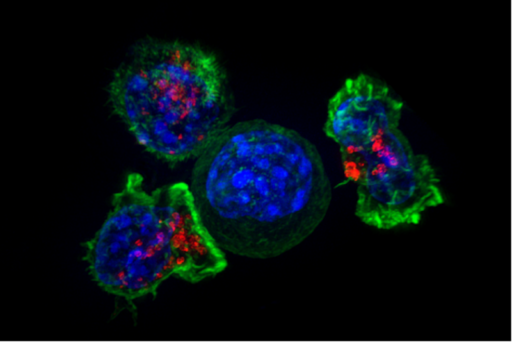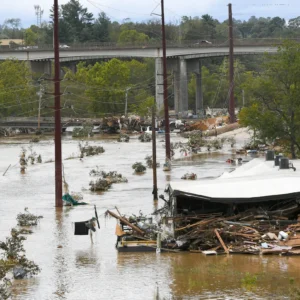The oncologist and Pulitzer-winning author, Siddhartha Mukherjee, credits a nineteenth century surgeon with branding cancer “the emperor of all maladies, the king of terrors.” In the fifty years since Richard Nixon declared a national “war on cancer,” biomedicine has made deep inroads into the emperor’s domain yet failed to topple him from his throne. As a cancer survivor myself—doing quite well three years after successful prostate surgery—I am grateful for the advanced weaponry, improved reconnaissance, and robust rules of engagement developed over the past half century. As a physician, however, I know too well that the war’s enemy is not a single entity but a legion of maladies, some readily vanquished, others putting up an even fight, still others all but invincible.
This war rhetoric, like all metaphorical language, renders incompletely that which it’s intended to describe—namely, the experience of cancer. After all, the supposed enemy is one’s own body, or rather certain cells of one’s body doing what they should: grow, but now in an uncontrolled and invasive manner the way modern cities sprawl outward, replacing once fertile farmland or delicate ecosystems with monotonous strip malls, gimcrack housing, and mile after ugly mile of soon to be crumbling pavement. For many, cancer feels less like a war than a personal violation, a physical assault leaving countless scars and bruises without promise of relief or rescue. For persons with cancer and those who love them, the disease provides ample occasion for all the core emotions: fear, grief, anger, disgust, and at times, even joy.
If, as poet Scott Cairns says, a poem should not merely denote an experience but make that experience available to the reader, then we are graced this spring with two new poetry collections doing precisely that. In Standing in the Forest of Being Alive (Alice James Books), Katie Farris renders the cancer-wracked body in its varied moods as she “trains” herself to “find in the midst of hell / what isn’t hell.” Diagnosed with stage three breast cancer in her mid-thirties, Farris explores the complex interplay of existential dread and erotic desire, the scarred body searching for a sense of dignity, and the alienating effects of individual suffering in a time of national unrest and global distress.
Filled with wit and unflinching candor, her poems grapple with the limits of embodied existence in a culture that fears death and worships autonomy. She begs forgiveness of her husband and fellow poet, Ilya Kaminsky, “for asking / your assistance / unwinding that pale hair / from my hemorrhoid.” She acknowledges the stares of others as she travels, “my shirt unbuttoned, my keys // in the lock / a six-inch scar instead of a nipple,” with “my bald head the beacon the first // alarm.” Having lost her hair that “used to be / a rope descending / my vertebrae to the basement / of my spine,” she solicits a promise to:
…find my heavy braid and bury it— I will need a rope to let me down into the earth. I’ve hidden others strategically around the globe, a net to catch my body in its weaving.
As a physician conscious of my profession’s delicate balancing act between healing and harm—a conundrum best captured in the Greek root for “pharmacy,” i.e. φάρμακον, meaning “remedy,” “poison,” and “scapegoat” all at once—I was most moved by Farris’s “To the God of Radiation,” which, regrettably, I can only quote in part:
Given the unexpected choice between uncertain death and certain damage, I find in the mirror a woman—breastless, burned—who in an advisory capacity, asks, How much do you want to live? Enough,
and later in that same poem:
…How much more can one body take?
Enough
Light every deadly cell
burning in the paper lantern of my chest—
my chest, a thing
so ephemeral
yet held so firmly in your fist.
Farris makes her experience of cancer available in elegant lines well worth revisiting. Her poetry gazes on bodies, love, illness, and desire with a peculiar intensity, making of these (with my apologies to singer-songwriter, John Gorka), “a weight, a wonder that is wise…(a) cross to bear.”
To describe Lindsey Royce’s new collection, The Book of John (Press 53), as a poetic meditation on her husband’s death from stomach cancer underestimates the scope of her project. The book’s opening poem, “Where Do We Carry the Dead?,” hints at what the remainder undertakes: practices of remembrance, the persistence of love, the ultimate unknowability of the other, an anti-theodicy indicting what a later poem calls a “Godthing.” Like Farris, Royce reckons with the erotic core of a marriage constrained by cancer’s assault on the body. In “Portrait in Half-Light,” she massages “the only body // parts the cancer hasn’t slit / like the gut of a fish,” and contemplates “his full / mouth, no longer quick / to grin, but grim / on his bony, dying face.” From the start, attentive readers will note Royce’s command of the line break, sometimes inviting us to teeter there like a teen at the edge of a high dive while still drawing us onward to the next line, incrementally advancing the poem.
“Two-Stepping to Chemo’s Beat,” “The Gift Tower,” and the titular “Book of John” alternately engage and dismiss the “Godthing,” that fickle, man-inflected, and magical deity—part Santa Claus, part Scrooge—at the heart of the functional atheism characterizing so much of American Christianity. Caring for her dying spouse, Royce acts as “keeper of his moans” and “the one who blessed him, / held water /to his withered lips,” even as she interrogates this “Godthing,” wondering “Where were the keys to unlock your mercy?” As John, a former U.S. Marine, shrivels before her eyes, an understandably angry Royce becomes “the banshee of keening // because you withheld succor and light.”
In the book’s second half, Royce lives into the reality of John’s death and her loss, measuring in “The Volume of His Absence,” “…where the loneliness begins, that trough of emptiness / beneath your heart, canary caged to keep your pain singing.” She longs to “summon you back to our bed, / where belly to belly, and amid / our favorite plum-cognac candies / we could make love one last time.” What anniversaries and celebrations she can manage are filled with “marzipan, chocolate, / and vodka, comfort foods, and toasts / to his damned fine, handsome self.” In time, she acknowledges:
I am at a crossroads, John—I can keep dying with you or walk on, despite the muddy path of my destiny alone. Tell me how I can fall out of love with your suffering, yet stay in love with you? My feet heavy with the gravity of each step, I don’t find balance in motion. Now, you’re nothing I comprehend, not the dead starling nor the living raven— but maybe you’re the burst of light illuminating the underside of wings.
When the premier photographer of the American Civil War, Matthew Brady, exhibited images of dead soldiers scattered across the battlefield at Antietam, The New York Times commented, “If he has not brought bodies and laid them in our dooryards and along the streets, he has done something very like it.” In their poetry, Farris and Royce have done much the same, unveiling the war on cancer in all its humanity and horror. It would be a great disservice to the wounded and fallen if we chose to look away.
Brian Volck is a pediatrician and writer living in Baltimore. He is the author of a poetry collection, Flesh Becomes Word, and a memoir, Attending Others: A Doctor’s Education in Bodies and Words. His website is Brianvolck.com





